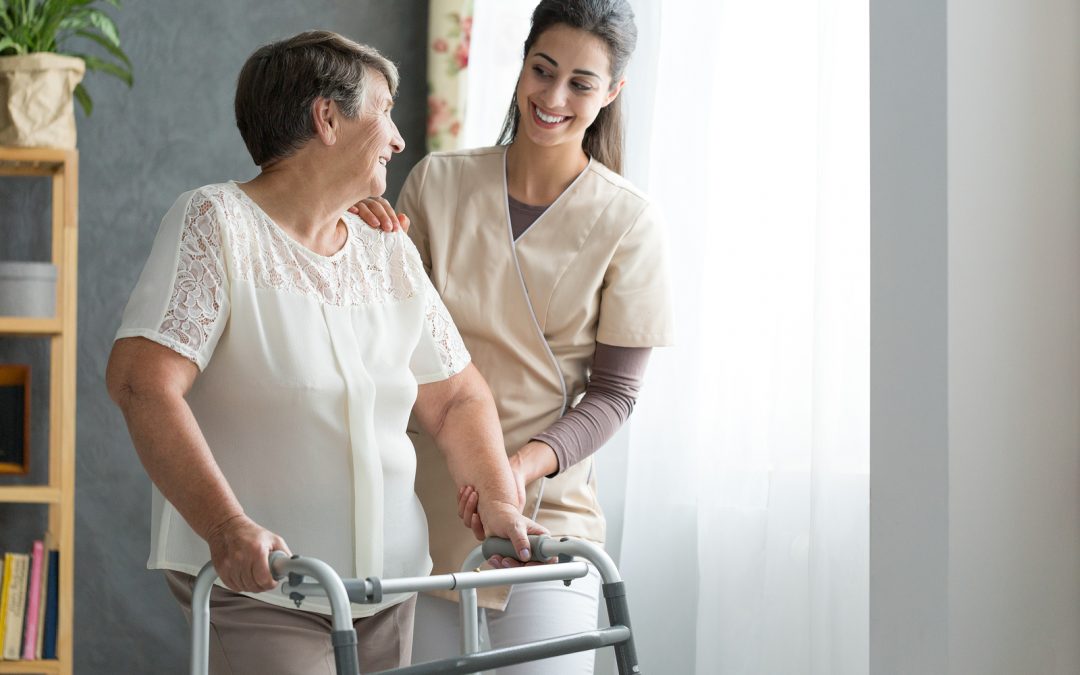The landscape of elderly care is rapidly evolving, thanks to technological advancements that are transforming the way care is delivered. These innovations not only enhance the quality of life for seniors but also provide peace of mind for their families and caregivers. From telemedicine to wearable health monitors, technology is bridging gaps and addressing challenges in elderly care like never before.
Telemedicine: Bridging Distance and Time
One of the most significant technological advancements in elderly care is telemedicine. This innovation allows seniors to consult with healthcare professionals from the comfort of their homes, reducing the need for frequent trips to the doctor’s office. Telemedicine is especially beneficial for those with mobility issues or chronic conditions that require regular monitoring. With video consultations, healthcare providers can assess, diagnose, and recommend treatments, ensuring that seniors receive timely and effective care.
Wearable Health Monitors: Continuous Health Tracking
Wearable health monitors have revolutionized how health data is collected and utilized. Devices like smartwatches and fitness trackers can monitor vital signs such as heart rate, blood pressure, and activity levels. These devices provide real-time data that can be shared with healthcare providers, enabling early detection of potential health issues. For seniors, this means continuous health monitoring without the need for invasive procedures, promoting a proactive approach to healthcare management.
Automated Medication Dispensers: Ensuring Adherence to Prescriptions
Medication adherence is a common challenge among the elderly, often leading to health complications. Automated medication dispensers are designed to address this issue by organizing and dispensing medications at scheduled times. These devices come with alarms and notifications to remind seniors to take their medications, significantly reducing the risk of missed doses and medication errors. Some advanced models can even notify caregivers or family members if a dose is missed, adding an extra layer of oversight.
Smart Home Technology: Enhancing Safety and Comfort
Smart home technology is another game-changer in elderly care. Devices such as smart lights, thermostats, and security systems can be controlled remotely, providing a safer and more comfortable living environment. For example, smart lights can be programmed to turn on and off automatically, reducing the risk of falls during nighttime trips to the bathroom. Additionally, smart security systems can alert caregivers and family members of any unusual activity, ensuring the safety of elderly residents.
Cognitive Aids: Supporting Mental Health and Cognitive Function
Technological innovations are also making strides in supporting mental health and cognitive function. Apps and devices designed for cognitive training can help seniors maintain and improve their mental agility. These tools often include games and exercises that target memory, attention, and problem-solving skills. Furthermore, virtual reality (VR) technology is being used to provide immersive experiences that can stimulate the mind and provide therapeutic benefits, especially for those with dementia or Alzheimer’s disease.
Social Connectivity: Combating Loneliness and Isolation
Loneliness and social isolation are significant issues among the elderly, contributing to mental health problems and decreased quality of life. Technology is playing a crucial role in keeping seniors connected with their loved ones and the world around them. Video calling platforms, social media, and online communities enable seniors to maintain social connections and engage in meaningful interactions, reducing feelings of isolation and loneliness.
Conclusion
Technological innovations are undeniably enhancing the quality of life for the elderly. By providing better access to healthcare, ensuring medication adherence, improving home safety, supporting cognitive health, and fostering social connections, these technologies are transforming elderly care. As technology continues to advance, the potential for further improvements in the quality of life for seniors is immense, promising a future where aging is synonymous with independence, health, and happiness.
Embracing these innovations is not just about adopting new tools but also about reimagining elderly care to create a more supportive, responsive, and enriching environment for our aging population.







Leave A Comment